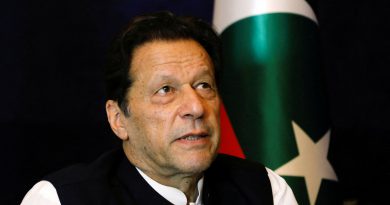U.S. envoy: Lebanon’s Bassil was open to breaking ties with Hezbollah
Beirut (Reuters) – The U.S. envoy to Lebanon said on Monday that Lebanese Christian politician Gebran Bassil, who has been sanctioned by the United States, had voiced willingness to sever ties with Hezbollah, challenging his assertion that he rejected the idea outright.
Washington on Friday blacklisted Bassil, son-in-law of Lebanon’s president and leader of its biggest Christian bloc, over charges of corruption and ties with the Iran-backed Shi’ite Hezbollah, which Washington deems a terrorist group.
Bassil slammed the sanctions as unjust and politically motivated, saying they were imposed after he refused to submit to a U.S. demand to break ties with Hezbollah as that would risk Lebanon’s national unity and peace.
U.S. Ambassador Dorothy Shea told Lebanon’s Al Jadeed TV that Bassil, in exchanges with her, had “expressed willingness to break with Hezbollah, on certain conditions.
“He actually expressed gratitude that the United States had gotten him to see how the relationship is disadvantageous to the party,” said Shea, without elaborating on the conditions.
Bassil did not immediately respond to a request for comment.
He, along with an array of the political elite, have been the target of mass protests since October 2019 against widely perceived corruption, waste and mismanagement of state funds.
Bassil denied corruption charges and said he would fight the sanctions in U.S. courts and sue for damages. President Michel Aoun said Lebanon would seek evidence from Washington.
“We endeavour to make as much information publicly available as possible when announcing designations, but, as is often the case, some of this information is not releasable,” said Shea, adding that Bassil was welcome to legally contest the blacklisting.
Bassil was sanctioned under the Global Magnitsky Human Rights Accountability Act, which targets human rights abuses and corruption. Shea did not rule out further sanctions against him or others in Lebanon.
Washington in September blacklisted two former Lebanese government ministers it accused of directing political and economic favours to Hezbollah.



